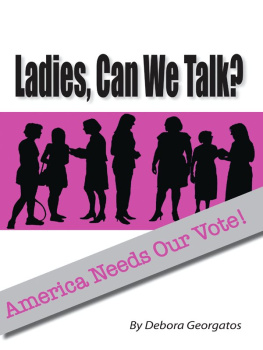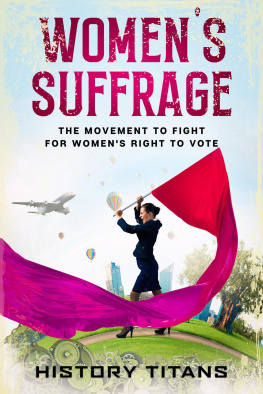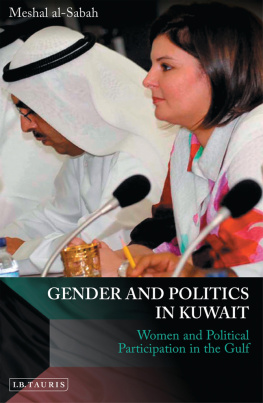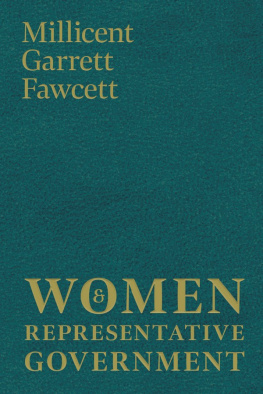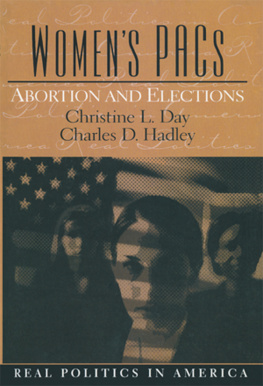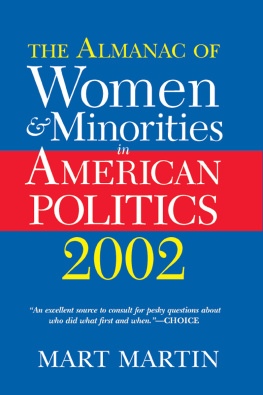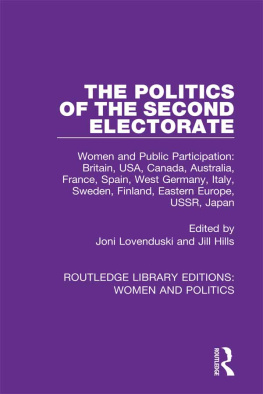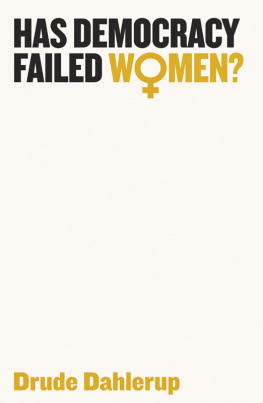100 Questions
about
Women and Politics
100 Questions
about
Women and Politics
Manon Tremblay
Translated from the French by Kthe Roth

First published in French as 100 questions sur les femmes et la politique, edition revue et augmente
2015 Manon Tremblay et Les ditions du remue-mnage
English edition McGill-Queens University Press 2018
ISBN 978-0-7735-5502-0 (cloth)
ISBN 978-0-7735-5503-7 (paper)
ISBN 978-0-7735-5543-3 (ePDF)
ISBN 978-0-7735-5544-0 (ePUB)
Legal deposit third quarter 2018
Bibliothque nationale du Qubec
Printed in Canada on acid-free paper that is 100% ancient forest free (100% post-consumer recycled), processed chlorine free
We acknowledge the financial support of the Government of Canada through the National Translation Program for Book Publishing, an initiative of the Roadmap for Canadas Official Languages 20132018: Education, Immigration, Communities, for our translation activities.

We acknowledge the support of the Canada Council for the Arts, which last year invested $153 million to bring the arts to Canadians throughout the country. Nous remercions le Conseil des arts du Canada de son soutien. Lan dernier, le Conseil a investi 153 millions de dollars pour mettre de lart dans la vie des Canadiennes et des Canadiens de tout le pays.
Library and Archives Canada Cataloguing in Publication
Tremblay, Manon, 1964
[100 questions sur les femmes et la politique. English]
100 questions about women and politics / Manon Tremblay ; translated from the French by Kthe Roth.
Translation of: 100 questions sur les femmes et la politique.
Includes bibliographical references and index.
Issued in print and electronic formats.
ISBN 978-0-7735-5502-0 (hardcover). ISBN 978-0-7735-5503-7 (softcover).
ISBN 978-0-7735-5543-3 (ePDF). ISBN 978-0-7735-5544-0 (ePUB)
1. Women Political activity Miscellanea. 2. Women politicians Miscellanea. 3. Women Political activity Canada Miscellanea. 4. Women Political activity Qubec (Province) Miscellanea. I. Roth, Kthe, translator II. Title. III. Title: One hundred questions about women and politics. IV. Title: 100 questions sur les femmes et la politique. English.
HQ1236.T7313 2018 | 320.082 | C2018-902524-7
C2018-902525-5 |
Contents
Acknowledgments
A number of people helped me prepare this edition of 100 Questions on Women and Politics, most of them by answering my questions or commenting on my text. I would like to thank the following people for their generous contributions and infinite patience: Sarah Andrews (New Democratic Party of Canada), Loleen Berdahl (University of Saskatchewan), Amanda Bittner (Memorial University), Gail Campbell (University of New Brunswick), Rosie Campbell (Birkbeck, University of London), Louise Carbert (Dalhousie University), Rachel Chagnon (Universit du Qubec Montral), Margaret Conrad (University of New Brunswick), Jennifer Curtin (University of Auckland), Joanna Everitt (University of New Brunswick), Marilyne Gauvreau (Universit de Moncton), Elizabeth Goodyear-Grant (Queens University), Jennifer Haire (University of Ottawa), Chantal Maill (Concordia University), Thrse Mailloux (Groupe Femmes, Politique et Dmocratie), Pascale Navarro (journalist and TV commentator), Jocelyne Praud (University of Victoria), Franois Rocher (University of Ottawa), Shannon Sampert (University of Winnipeg), Marian Sawer (Australian National University), Marie-Thrse Sguin (Universit de Moncton), Rjane Snac (Centre national de la recherche scientifique, Centre de recherches politiques de Sciences Po, Paris), and Melanee Thomas (University of Calgary). It goes without saying that I alone am responsible for any errors or omissions in this book.
Valrie Lapointe, doctoral student at the University of Ottawa, provided assistance with the adaptation and updating required for this English-language edition. I am grateful for her rapid responses to my many questions.
I have been working with Kthe Roth for a decade now. Her adaptation of my ideas is so elegant that sometimes I feel she knows better than I do what Im thinking and want to say. She is thus a work colleague in a way, but above all she is a collaborator in the dissemination of my ideas in English. Thank you, Kthe.
My wholehearted thanks go to two colleagues who evaluated 100 Questions and gave their opinions regarding its viability in English. They made very valuable proposals for adapting the book to an English-Canadian readership proposals that obliged me to do research and discover things that I hadnt known about women in politics in the prairie provinces and Atlantic Canada.
Finally, I would like to thank the entire McGill-Queens University Press staff, especially my editor, Jacqueline Mason. In all honesty, I hadnt thought this translation was possible, but Jacquelines enthusiasm quickly changed my mind! Thank you, Jacqueline, for believing in this project. Ryan Van Huijstee has been a superb managing editor efficient, straightforward, and patient. I would like to thank Judy Dunlop for her indexing of 100 Questions; I admire her willingness to take on this Herculean task. Finally, I am grateful to my students who, over the years, have taken my Les femmes et la politique seminar at the University of Ottawa for their questions, input, and challenges. Without them, 100 Questions would probably not have been written.
100 Questions
about
Women and Politics
Introduction
Is a book on women and electoral politics necessary when women are increasingly present in politics, including at the peak of state power as prime ministers, presidents, and mayors and when, in Canada because it is 2015 (as Prime Minister Justin Trudeau famously remarked) the federal cabinet has full femalemale parity?
These well-publicized success stories are the few trees that hide the forest. Worldwide, in 2016, fewer than one parliamentary seat in four and one ministerial position in five was occupied by a woman, and only some twenty countries were led by women. Girls and women are still less likely than boys and men to see politics as a career, and, it goes without saying, women who run for office are very likely to encounter more difficulties than are men. If they manage to enter the inner sanctum (the cabinet), the gender regime will catch up to them, confining them to the lower end of the executive hierarchy through assignment to pink portfolios.
100 Questions on Women and Politics is based on a pedagogical approach that favours educational outreach. In this book, I aim to provide essential information the minimum that one should know about womens participation in electoral politics in Canada and elsewhere in the world in a simple, accessible style. This does not mean that I avoid theoretical debates and the concepts they convey or sidestep questions of justice and ethical dilemmas; it means that I deal with them as plainly as possible. The questions, most of which were asked by my students, are addressed in an order that fits with the particular ecology of a university course, but they do not have to be read in numerical order; rather, readers may browse to find the answers they seek. In this sense, 100 Questions aims to provide a versatile, dynamic tool for courses on womens participation in electoral politics as well as a useful source for journalists and members of the general public who want to quickly wrap their minds around a question.
Next page

